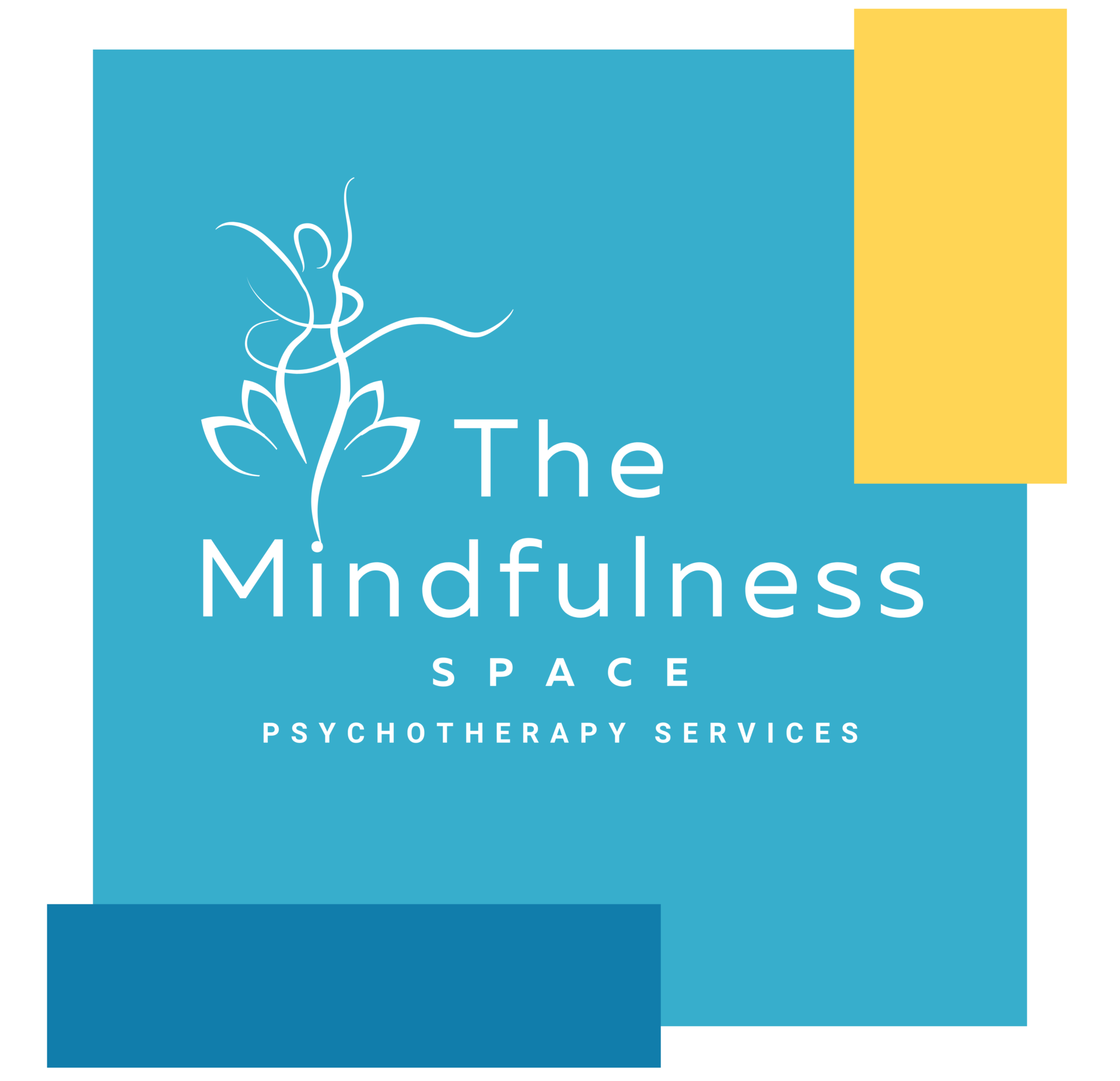What Happens When Spirituality Meets Diet Culture?
I remember sitting in a religious service one day, listening to a sermon about spiritual fasting for Lent. Side note: If you’re not familiar with Lent, it’s a season in many Christian-informed traditions that lasts 40 days, and leads up to Easter. It’s essentially meant to be a time of self reflection and spiritual discipline, often involving giving up certain habits, attachments or distractions as a form of spiritual devotion.
At one point during the sermon, I remembered the pastor using a comparison about how, when we say we’re going to stay away from things like cake, “the devil” often comes in and whispers, “It’s OK to have a little bit.”
In that moment, I just remembered my inner therapist rolling their eyes and thinking… Aww $@&?!, here we go!
I know, my inner therapist is really about that life, so please don’t judge them!
Now, I like to believe that I’m a logical person and I completely understood the overall nuance of the message. I’m fairly certain that this pastor was speaking metaphorically and using this as an example of resisting temptation while staying committed to spiritual discipline; However, my inner critical thinker immediately flagged how this type of messaging can absolutely blur the lines between faith and diet culture talk.
Because let’s be real…What’s actually wrong with having a little bit of cake every now and then?
Honestly, unless you have a medical condition like diabetes, where eating certain foods can be physically and medically harmful for you, why are we framing eating cake in a way that’s reasonable as some sort of moral and spiritual failure sent directly by Satan himself?
I couldn’t help but think about how someone actively struggling with skewed, rigid thought patterns stemming from an eating disorder might hear this sermon and take it very literally. If someone is already battling rigid thoughts or food rules, hearing that eating cake is somehow evil and “giving into temptation” could reinforce the belief that food is something that’s morally impure, and meant to be feared and controlled, rather than something needed to nourish our bodies and quite frankly, enjoy!
Now, before anyone grabs their pitchforks, cancels me, and chases me off the Internet, let’s be clear…If fasting from food is something that’s meaningful to you and helps you grow spiritually, that’s completely valid.
This article isn’t about shaming any particular religion or the practice of fasting in general. This article is meant for people who are living with a diagnosed eating disorder, struggling with disordered eating-related behaviors, or experiencing symptoms that make them vulnerable to the ways religious practice and diet culture often get tangled together. It’s meant to empower them to know that it’s okay to question whether certain messages are actually serving you or just reinforcing harmful beliefs about food and self-worth in a way that may worsen ED symptoms and make us feel bad.
The truth is this: Spiritual fasting is meant to be a personal practice designed to strengthen faith…NOT an excuse to diet!
No…Fasting is NOT a weight loss plan!
Self-discipline is NOT purely about restricting food!
Resisting cake does NOT make you “holier than thou!”
Unfortunately, diet culture-based rhetoric has always managed to find its way into faith-based spaces and convinced people that self-control is solely and exclusively measured by avoiding food.
The truth is, it’s about so much more than what’s on our plate!
Spiritual fasting doesn’t have to be about food restriction! It can also be about letting go of what no longer serves us personally, such as negative thought patterns, or behaviors in other areas in our lives!
What if fasting wasn’t just about taking something away, but about creating space for something better? What if, instead of depriving ourselves, we used fasting as a way to reset, reflect, and step into a healthier emotional mindset?
Here are some ways to approach fasting from a more meaningful, anti-diet, healing-centered perspective…

1. Fast from Negative Self-Talk and Practice Self-Compassion
A lot of us have an inner voice that can be harsh, critical, and unforgiving. Instead of fasting from food, what if we fasted from the constant self-judgment?
This could look like replacing thoughts of “I’m not doing enough” with “I am doing the best I can with what I have.” It could be as simple as writing down one thing you like about yourself every day or catching yourself in those moments of self-criticism and shifting the narrative.
Ask yourself: Would I speak to a friend the way I speak to myself? If the answer is no, then it’s time to make some changes!
2. Let Go of Comparison and Embrace Your Own Path
Comparison has a way of creeping in, especially in a world where we’re constantly seeing everyone’s highlight reels on social media. It’s easy to feel like we’re falling behind or not measuring up to others.
Fasting from comparison doesn’t mean avoiding social media altogether (unless that feels right for you), but it might mean muting accounts that trigger self-doubt or limiting the time you spend scrolling. It could also mean setting aside time each day to reflect on what’s already good in your life instead of focusing on what you think is missing.
3. Release the Need for Control and Practice Surrender
For anyone who struggles with anxiety or perfectionism, there’s a natural instinct to try to control everything. This includes how people perceive us, how situations unfold, how we look, how we plan for the future. But there’s only so much we can control, and trying to force specific outcomes related to things that are outside of our control, only lead to increased stress and anxiety.
Fasting from the need for control means practicing trust. It means reminding yourself that you don’t have to have all the answers right now. One way we can practice this is to write down three things that are causing stress and instead of immediately trying to solve them, sitting with the discomfort and allowing ourselves to let go, even if just for a moment.
4. Let Go of Resentment and Make Space for Healing
Holding onto resentment is like carrying a weight that only you feel. It doesn’t punish the other person, it only drains you.
Releasing resentment doesn’t mean excusing someone’s actions or forgetting what happened. It means freeing yourself from the emotional burden of it. You can practice releasing resentment by journaling about what holding onto it has cost you, or writing a letter to someone you need to forgive (even if you never send it to them).
Remember that fasting doesn’t have to be about deprivation, especially as it relates to food that’s intended to bring our bodies much-needed nourishment.
Instead of seeing fasting as an act of restriction, what if we begin viewing it as an act of liberation and meaningful change?
Need Support Navigating an Eating Disorder?
If you or someone you love is struggling with disordered eating behaviors or body image dissatisfaction, The Mindfulness Space in North Carolina is here to help!
We offer outpatient-level eating disorder treatment to address the underlying psychological factors that often contribute to or worsen their symptoms through psychotherapy services! We also provide a full comprehensive clinical assessment to determine the severity of your symptoms and help you to determine which level of care is best for you!
Stefanie Lawson is a licensed therapist with nearly a decade of clinical experience, and is the owner of The Mindfulness Space therapy in Greensboro, North Carolina. She specializes in treating underlying depression, anxiety, stress, unresolved trauma, and other mental health concerns that often lead to eating disorders and body image dissatisfaction, including Body Dysmorphic Disorder, in adults and transitional-aged teens.
The Mindfulness Space is an in-network provider with many insurance plans, including Cigna, Aetna, United Healthcare, United Behavioral Health, and Optum. Contact us today to learn more and schedule your free 30-minute consultation with us today!
Shop with The Mindfulness Space!
Every purchase goes towards helping The Mindfulness Space provide accessible therapy for clients!
More from the mindfulness space…
Am I Dating a Narcissist?
Take the Quiz Here!










